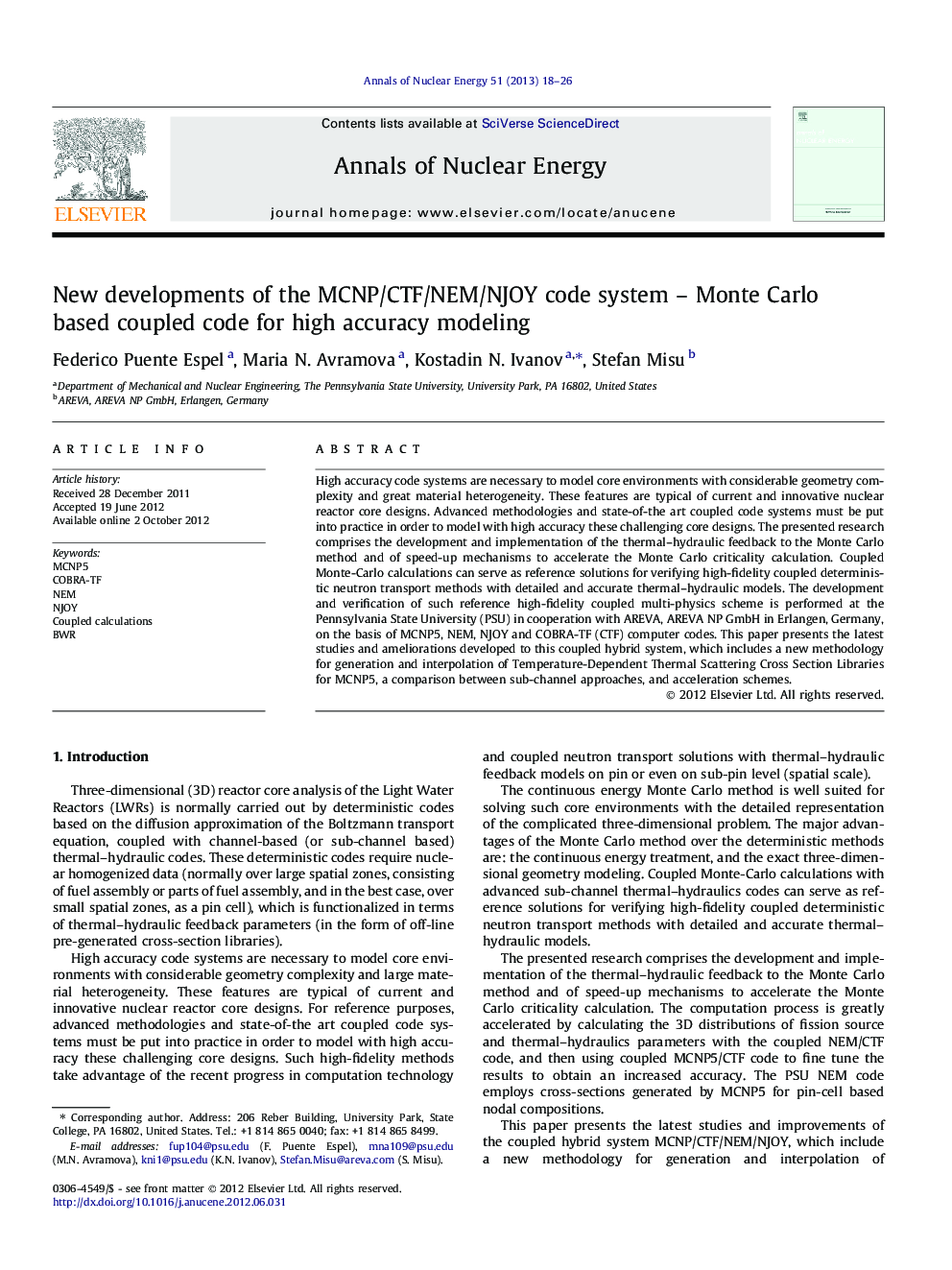| Article ID | Journal | Published Year | Pages | File Type |
|---|---|---|---|---|
| 1728669 | Annals of Nuclear Energy | 2013 | 9 Pages |
High accuracy code systems are necessary to model core environments with considerable geometry complexity and great material heterogeneity. These features are typical of current and innovative nuclear reactor core designs. Advanced methodologies and state-of-the art coupled code systems must be put into practice in order to model with high accuracy these challenging core designs. The presented research comprises the development and implementation of the thermal–hydraulic feedback to the Monte Carlo method and of speed-up mechanisms to accelerate the Monte Carlo criticality calculation. Coupled Monte-Carlo calculations can serve as reference solutions for verifying high-fidelity coupled deterministic neutron transport methods with detailed and accurate thermal–hydraulic models. The development and verification of such reference high-fidelity coupled multi-physics scheme is performed at the Pennsylvania State University (PSU) in cooperation with AREVA, AREVA NP GmbH in Erlangen, Germany, on the basis of MCNP5, NEM, NJOY and COBRA-TF (CTF) computer codes. This paper presents the latest studies and ameliorations developed to this coupled hybrid system, which includes a new methodology for generation and interpolation of Temperature-Dependent Thermal Scattering Cross Section Libraries for MCNP5, a comparison between sub-channel approaches, and acceleration schemes.
► New coupled Monte Carlo code system for reference results at operating conditions. ► Automated methodology to create and use temperature-dependent cross section libraries. ► Multi-level coupling scheme between MCNP5 and COBRA-TF with different options. ► Acceleration strategy for coupled Monte Carlo calculations including hybrid approach. ► Sensitivity studies on thermal-scattering models and different sub-channel approaches.
